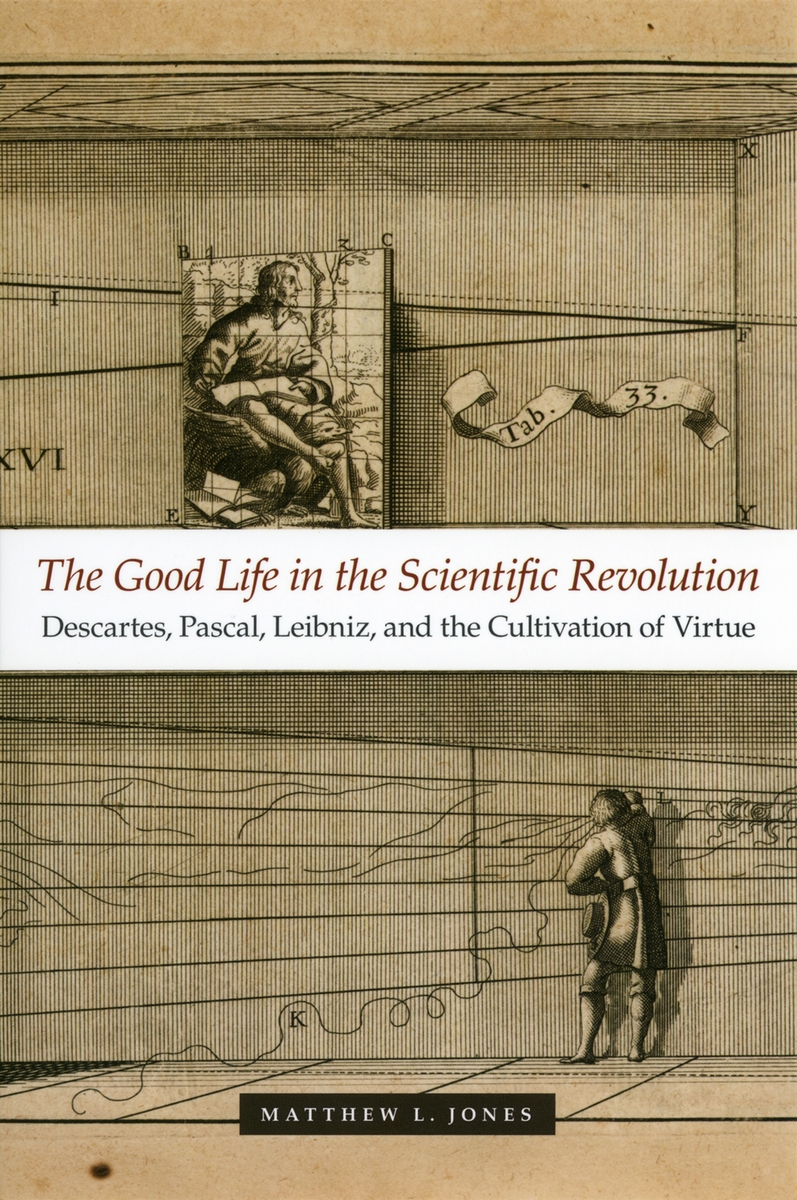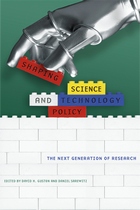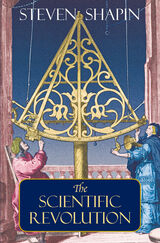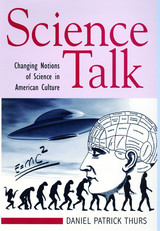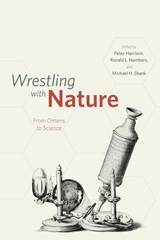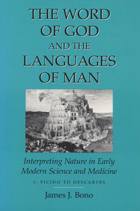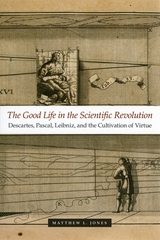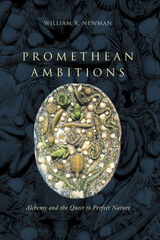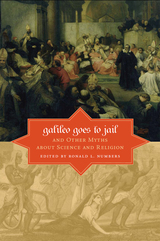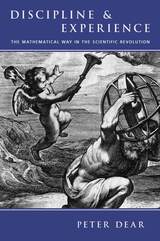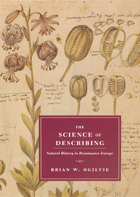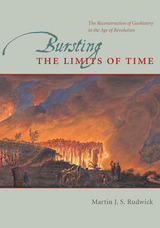"With an exceptional blend of historical, philosophical, literary, and technical skills, Matt Jones reframes the whole debate about the place of civility in science and philosophy. Politeness has been typically seen as a tool for the social legitimation of the sciences, but Jones demonstrates that Descartes, Pascal, and Leibniz viewed the mathematical sciences as a means to the only civilizing process that really mattered. Civility and mathematics converged in the pursuit of 'the good life'— the refining of the limited cognitive, ethical, and spiritual capacities humans still had in the postlapsarian context. By refusing to reduce civility to either the order of society or nature, Jones’s book shows us the simultaneous production of selves and knowledge.”
— Mario Biagioli, author of Galileo's Instruments of Credit
“We have long known two things and yet, only with Matthew Jones’s strikingly original book, have they been put together. On the one hand, the long philosophical tradition, back from the time of the ancients, has stressed the profound connection between the study of philosophy and the conduct of a good life. On the other, Descartes, Pascal, and Leibniz each embedded their science and their philosophy in a common enterprise. What Jones has shown is that, for these pivotal thinkers, the practices of the science was a form of spiritual exercise, a cultivation not only of a right way of thinking but of a right way of being. This is fresh, important work that re-situates key works of early modern science—indeed of early modern thought, full stop.”
— Peter Galison, Harvard University
“This lucid and learned study shows how the quest for virtue intersected with the quest for the truths of mathematics and natural philosophy in the writings of three seminal seventeenth-century thinkers. The Good Life in the Scientific Revolution can be expected to have reverberations well beyond the history of science and philosophy, for early modern cultural and intellectual historians will surely be challenged by Jones’s new way of making seventeenth-century moral, religious, political, and scientific thought cohere.”
— Lorraine Daston, director of the Max Planck Institute for the History of Science
“The book is a tour de force, offering a fundamental reassessment of what drives early-modern philosophical thought. A wonderfully imaginative and original investigation of the way in which Descartes, Pascal, and Leibniz used mathematical questions to probe human capacity. This is a truly path-breaking achievement.”
— Stephen Gaukroger, University of Sydney
“The natural world was once at the center of a philosopher’s life, central to answering the question ‘how should one live?’ In this absorbing book, Matthew Jones gives new life to the apparently disparate work of Descartes, Pascal, and Leibniz by showing that these much-studied figures will only make sense to us when we see them as practical philosophers, for whom the sciences were crucial keys to self-understanding in a challenging universe.”
— Peter Dear, Cornell University
"Gracefully, and piece by piece, Jones presents the reader with the building blocks of Descartes, Pascal and Leibniz's natural philosophies, identifying their reference points, models and influences, the forms of argumentation they employed . . . and how they circulated (and attempted to popularize) their contributions to knowing, or what some might today call science. Linking these frameworks reveals distinct patters, which historians of all stripes will find quite instructive."
— Kelly J. Whitmer, H-German
"Jones carefully reconstructs the philosophical context of the seventeenth and eighteenth centuries in which these great mathematicians worked. . . . Meticulous and careful scholarship."
— Bonnie Shulman, MAA Online
"Jones has done a masterful job of relating the mathematical thought of his three philosophers to their ethical and epistemological concerns."
— Lisa T. Sarasohn, American Historical Review
"This book sets a fascinating stage for these philosophers, one that not only fits them into their own narrow historical context, but also places them within a broader philosophical context of human attempts to understand just how we think we fit into this strange and sometimes terrifyuing world."
— Charlie Huenemann, Journal of the History of Philosophy
"The scholarship is formidable, extending way beyond the three principal figures studied to a host of lesser-known thinkers. . . . This is a book that historians of ideas will admire for its meticulous detail and that should also interest less historically oriented philosophers by unfolding a now largely lost world in which science and ethics were integrally interconnected."
— John Cottingham, Isis
